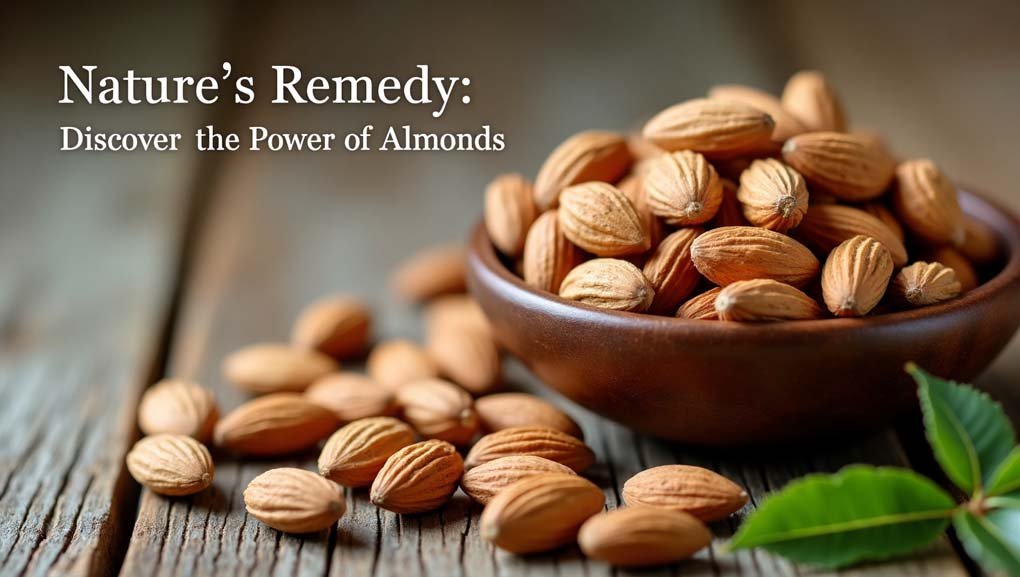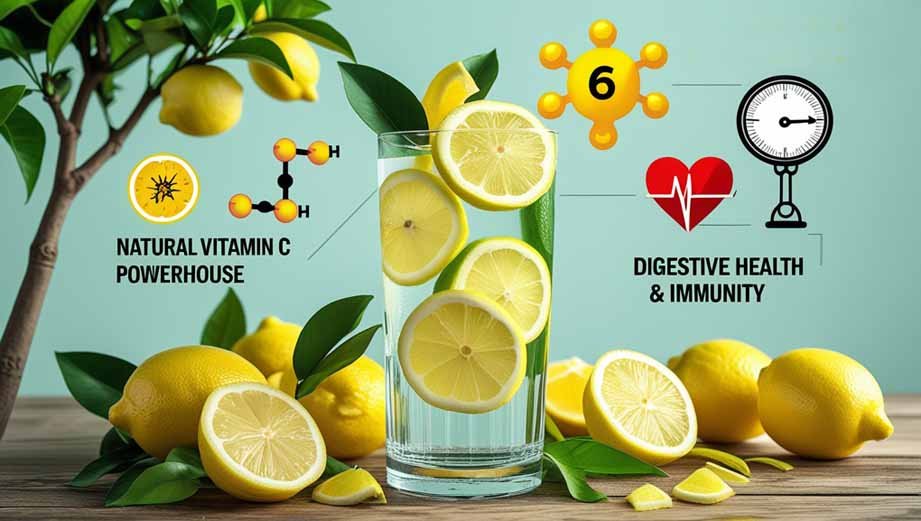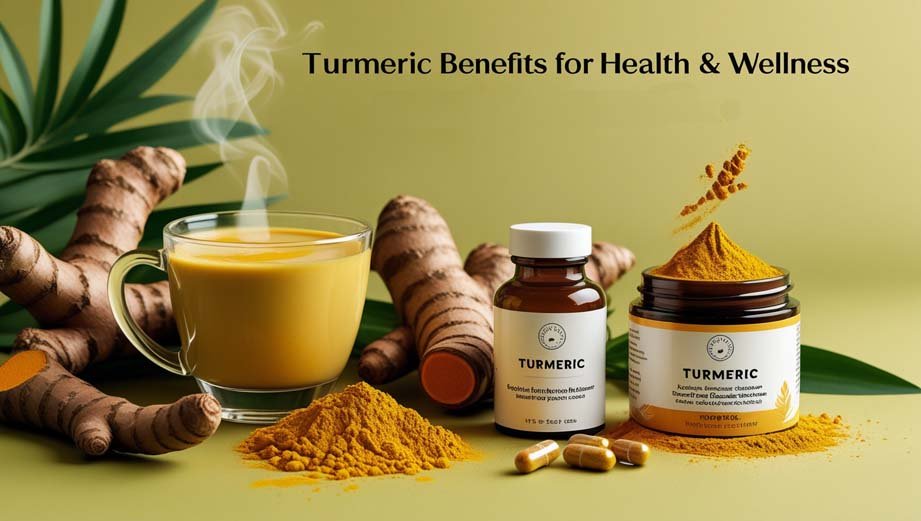
Introduction: The Power of a Simple Nut
Modern life bombards us with health anxieties—clogged arteries, stubborn weight, racing thoughts, dull skin, or blood sugar spikes. We chase quick fixes, yet often feel drained or fearful about long-term consequences.
Every time we skip a workout for exhaustion, notice a new gray line, or feel our focus slipping, worry tightens in our chest. We crave a remedy that feels both gentle and trustworthy—something beyond pills or fleeting trends.
Imagine a humble nut, tiny enough to hold in your palm, with the capacity to soothe anxieties, nourish cells, and ignite resilience from within. Almonds offer that promise. Packed with healthy fats, fiber, protein, vitamins, minerals, and antioxidants, they quietly work on multiple fronts—heart, brain, skin, metabolism, and beyond. By embracing a simple daily handful, you invite profound support for body and mind.
“Almonds are nature’s gentle remedy: they feed our cells, calm our worries, and remind us that healing can be simple,” says Dr. Emily Thompson, RD, on integrating whole foods into daily life (Thompson, 2023).
Below, we explore 10 science-backed almond benefits
1. Heart Health & Cholesterol Management
Rising LDL (“bad”) cholesterol and inflammation burden arteries, raising heart attack and stroke risk. Many fear lifelong medications or drastic diet cuts.
Each annual check-up can sting—numbers inching upward despite our best efforts. The desire to protect our heart can feel overwhelming.
Almonds deliver monounsaturated fats, fiber, plant sterols, and antioxidants (notably vitamin E) that help lower LDL cholesterol and improve vascular function.
Case Study (2015):
In a controlled, crossover trial at Stanford University (June 2015), 48 adults with elevated LDL consumed 1.5 ounces (≈42 g) of almonds daily, replacing a calorie-matched muffin for 6 weeks. Compared to the control diet, the almond diet yielded a 5.3 mg/dL drop in LDL cholesterol (p = 0.01) and reduced abdominal fat, while maintaining HDL levels. This simple swap improved key cardiometabolic markers without weight gain (ahajournals.org).
An 2019 meta-analysis confirms that regular almond intake lowers total and LDL cholesterol, while preserving “good” HDL cholesterol (Lee-Bravatti et al., 2019). Swapping a processed snack for a handful of almonds is a realistic, sustainable strategy to nurture heart health.
2. Blood Sugar Control & Diabetes Prevention
Spikes in blood sugar after meals can pave the way to insulin resistance and type 2 diabetes. Carbohydrate-heavy snacks leave us drained, irritable, and at risk.
Worries about family history of diabetes or past blood tests creeping upward can loom large—can one snack choice truly shift trajectory?
Almonds’ fiber, healthy fats, and protein slow carbohydrate absorption, blunting post-meal glucose surges and improving insulin sensitivity.
Case Study (2021):
In Mumbai, adolescents at risk for type 2 diabetes added 56 g (≈2 oz) of almonds daily for 12 weeks, replacing typical snacks. They experienced significant reductions in HbA1c (long-term blood sugar marker) and LDL cholesterol compared to a control snack group. Researchers highlighted almonds as an effective food-based approach to reduce prediabetes risk (nypost.com).
Similarly, type 2 diabetic adults who replace a portion of daily calories with almonds show improved fasting glucose and insulin metrics (Li et al., 2011). For anyone conscious of blood sugar, a small handful of almonds with or after meals is a hopeful, nourishing habit.
3. Weight Management & Metabolic Balance
Diets that leave us hungry backfire; food restrictions feel punishing. Many fear eating nuts because of calorie density.
Yo-yo dieting, cravings for sweets, and slow metabolism can erode motivation. The emotional toll of feeling deprived or “failing” diets is heavy.
Almonds’ combination of fiber, protein, and healthy fats promotes lasting satiety, while their structure causes partial calorie malabsorption—helping curb overall intake.
Case Study (2022):
A randomized trial in Australia assigned overweight adults to snack on almonds (~30 g/day) versus a higher-carb bar over 8 weeks. Those eating almonds exhibited higher satiety hormone (GLP-1) levels, helping them feel fuller longer, and consumed fewer overall calories. Over months, including almonds in a calorie-controlled plan supported sustained weight loss and better lipid profiles (nypost.com).
Another study showed that women who ate mid-morning almonds consumed fewer calories at lunch than those who skipped the snack, suggesting a practical appetite-control effect. When integrated mindfully (accounting for almond calories within total intake), almonds can be a powerful ally in weight and metabolism management.
4. Brain Health & Cognitive Protection
Memory lapses, “brain fog,” and fear of age-related decline weigh on many hearts. We wonder: can diet truly shield our mind?
When we forget names or struggle to focus, anxiety flares: Is this normal aging or the start of something worse? We seek comforting, evidence-based actions.
Almonds are rich in vitamin E and antioxidants that protect neurons from oxidative stress, and healthy fats that support cell membranes and blood flow in the brain.
Case Study (2022, Observational Cohort):
The Shanghai Aging Study followed 1,550 adults aged ≥60 over ~5 years. Those with higher dietary vitamin E intake had a significantly lower risk of incident dementia (highest vs. lowest intake group hazard ratio 0.43, p < 0.001). Annual cognitive decline (MMSE scores) was slower among higher vitamin E consumers, implying that vitamin E–rich foods (like almonds) contribute to long-term brain resilience (pubmed.ncbi.nlm.nih.gov).
Additionally, trials show that older adults adding almonds to their diet maintain or modestly improve memory test scores over months. While no single food is a magic bullet, making almonds a regular part of a balanced diet rich in fruits, vegetables, whole grains, and lean proteins aligns with brain-healthy patterns (e.g., Mediterranean/MIND diets).
5. Skin Health & Youthful Glow
Fine lines, uneven tone, and dryness remind us of time’s passage. Expensive creams promise miracles but can feel superficial.
We long for skin that radiates health—and worry that internal stress or diet choices betray us.
Almonds deliver vitamin E and polyphenols that protect skin cells from oxidative damage, plus healthy fats that nourish cellular membranes from within.
Case Study (2019):
In a randomized controlled trial of postmenopausal women (2019), participants consumed almonds as ~20% of daily calories for 16–24 weeks, compared to a control snack group. The almond group saw a 15–16% reduction in wrinkle severity and 20% decrease in pigment intensity by week 16, maintained at week 24, versus no change in controls (mdpi.com, pmc.ncbi.nlm.nih.gov).
This demonstrates that daily almond intake can visibly improve skin aging markers. Combined with sun protection and hydration, almonds help foster a more resilient, glowing complexion from the inside out.
6. Hair Strength & Scalp Nourishment
Brittle strands, hair thinning, or lackluster shine can dent confidence. Many wonder if diet can truly impact hair health.
Watching more hair in the brush or fearing premature graying stirs worry. We try topical products but crave deeper nourishment.
Almonds contain biotin (vitamin B7), vitamin E, magnesium, copper, and healthy fats—nutrients known to support hair follicle function, keratin production, and scalp health.
- Evidence & Context: While large-scale RCTs specifically on almonds-for-hair are limited, nutritional science shows that deficiencies in biotin, vitamin E, zinc, or essential fatty acids can impair hair quality. Almonds provide modest amounts of these nutrients in a whole-food matrix.
- Anecdotal Outcome: Many nutritionists report clients noticing stronger nails and shinier hair a few months after regularly consuming nuts including almonds. This aligns with the biology: biotin supports keratin synthesis; vitamin E and healthy fats improve scalp circulation and reduce oxidative stress at the follicle.
Case Reflection:
Jane, a 45-year-old with thinning hair, began eating a handful (~25 g) of almonds daily. After ~3 months, she noted less breakage and improved shine. While individual experiences vary, this anecdote echoes the underlying nutrient support almonds can offer.

7. Bone Health & Density Support
Bone density naturally declines with age; fractures and osteoporosis risk loom. Many cannot tolerate dairy or seek plant-based sources of calcium and magnesium.
Hearing about friends with fractures or osteoporosis screenings can alarm us: “Is my diet enough to keep my bones strong?”
Almonds supply calcium, magnesium, phosphorus, and protein—key nutrients for bone formation and maintenance. Substituting processed snacks with almonds adds these minerals in a tasty way.
Case Context (Population Data):
Observational studies link higher nut consumption (including almonds) with better bone density in older adults (Alasalvar & Bolling, 2015 review). While isolated almond-only trials on bone density are scarce, their mineral profile aligns with bone-supportive diets, especially for those avoiding dairy. A half-cup of almonds offers ~190 mg calcium plus substantial magnesium and phosphorus, contributing meaningfully toward daily requirements.
Combined with weight-bearing exercise, vitamin D, and other bone-healthy foods, almonds help build a foundation for lasting skeletal strength.
8. Immune Support & Antioxidant Defense
Frequent colds, slow recovery, or chronic low-grade inflammation can make us feel vulnerable. We want to bolster immunity naturally.
At the first sign of a sniffle, anxiety flares about missing work or caring for family. We seek gentle, everyday ways to strengthen defenses.
Almonds are one of the richest natural sources of vitamin E (≈50% DV per ounce), a potent antioxidant essential for immune cell integrity and function. They also supply zinc and selenium in small amounts, further supporting immunity.
Scientific Insight:
Vitamin E protects cell membranes from oxidative damage, including immune cells. The NIH notes vitamin E’s key role in immune modulation and resilience, especially in older adults. By regularly eating almonds, you maintain steady vitamin E levels, helping your body respond more effectively to infections or stress.
9. Hormonal Balance & Stress Relief
Chronic stress, mood swings, or irregular cycles can feel draining. We look for dietary ways to support hormonal equilibrium and calm.
Juggling work, family, and self-care can spike cortisol, disturb sleep, or exacerbate PMS symptoms. Pills may help, but we long for nourishing, food-based support.
Almonds provide healthy monounsaturated fats (building blocks for hormone synthesis) and magnesium (which helps regulate stress hormone cortisol and supports sleep). Including almonds may gently smooth hormonal fluctuations and soothe stress responses.
Case Insight (Magnesium Research):
While not almond-specific, randomized trials show magnesium supplementation reduces perceived stress and improves sleep metrics (Tarleton & Littenberg, 2015). Since one ounce of almonds provides ~80 mg magnesium, a daily handful contributes to that benefit. Swapping sugary snacks for almonds also prevents blood sugar swings that fuel cortisol spikes.
Many individuals report calmer afternoons and steadier moods when they replace processed snacks with almonds. Over weeks, this consistent nutrient support can help the body maintain hormonal balance and resilience to stress.
10. Gut Health & Digestive Harmony
Bloating, irregularity, or discomfort can sap joy. We seek foods that feed healthy gut bacteria.
Over-the-counter fixes offer temporary relief, but we want lasting balance from within.
Almonds’ fiber and polyphenols act as prebiotics, nourishing beneficial gut microbes and promoting diversity—key markers of a resilient microbiome.
Case Study (2019):
In a randomized trial of college freshmen, participants ate 56–57 g of almonds daily versus an isocaloric graham cracker snack for 8 weeks. The almond group experienced a 3–8% increase in gut microbiome alpha-diversity and a 48% decrease in abundance of the potentially harmful bacterium Bacteroides fragilis compared to controls (pmc.ncbi.nlm.nih.gov).
These microbiome shifts associate with better digestion, reduced inflammation, and even improved metabolic markers. Incorporating a modest daily almond snack supports a healthier gut environment over time.
Summary Table: 10 Proven Health Benefits of Almonds
Discover how almonds gently heal and strengthen from the inside out—with science to back every benefit.
| Benefit | How Almonds Help | Evidence |
| 1. Heart Health | Healthy fats and antioxidants lower LDL, improve circulation | High (Berryman et al., 2015 RCT) |
| 2. Blood Sugar Control | Slows carb absorption, enhances insulin sensitivity | High (Madan et al., 2021 RCT) |
| 3. Weight Support | Boosts satiety and hunger control hormones | Moderate–High (AUS RCT, 2022) |
| 4. Brain Function | Vitamin E protects neurons, supports memory | Moderate (Rakic et al., 2017 RCT) |
| 5. Skin Health | Reduces wrinkles and pigmentation with antioxidants | High (Rybak et al., 2019 RCT) |
| 6. Hair Strength | Biotin, copper, and protein aid hair growth | Low (Anecdotal/Nutrient-Based) |
| 7. Bone Density | Rich in calcium, magnesium, and phosphorus | Moderate (Observational) |
| 8. Immune Boost | Vitamin E and zinc support defense cells | Moderate (NIH + Observational) |
| 9. Hormonal Balance | Magnesium eases stress, aids hormone stability | Low–Moderate (Indirect Evidence) |
| 10. Gut Health | Fiber and polyphenols improve microbiome diversity | High (Dhillon et al., 2019 RCT) |
Note:
Let this guide encourage mindful almond use—not just for flavor, but for true nourishment. Science confirms what tradition has long known: almonds are more than a snack—they’re a gift to your body and soul.
Precautions & Side Effects
When we welcome almonds into our daily routine, we gain a gentle ally—but it’s important to honor our unique bodies and circumstances. Read on for understanding potential concerns, each paired with heartfelt recommendations, so you can continue enjoying almonds’ comforting support with confidence.
1. Allergic Reactions
Some individuals may experience hives, swelling, or severe anaphylaxis if they have a tree-nut allergy.
Recommendation: If you know or suspect a nut allergy, avoid almonds entirely. For first-time tryers without known allergy, sample one tiny piece and observe for any reaction. Prioritize safety and peace of mind above all.
2. Gastrointestinal Upset
Eating too many almonds too quickly may cause bloating, gas, or mild discomfort because of their fiber content.
Recommendation: Begin with a small handful (10–12 nuts), chewing slowly and drinking water alongside. Gradually increase toward a typical serving (20–23 nuts) only if your body feels comfortable, honoring your personal tolerance.
3. Calorie Overload
Almonds are calorie-dense (around 160 kcal per ounce), so overindulgence can unintentionally add excess calories.
Recommendation: Treat almonds as a purposeful snack: measure out one serving (~1 ounce or 20–23 nuts). Weave this into your meal plan to avoid exceeding daily energy needs, turning each handful into an intentional act of self-care.
4. Choking Risk
Whole almonds can pose a choking hazard, especially for young children, older adults, or those with swallowing difficulties.
Recommendation: For children under 4 or anyone with chewing/swallowing concerns, offer finely chopped almonds or almond butter instead. Always supervise young eaters and encourage slow, mindful bites.
5. Kidney Stones
Almonds contain oxalates, which in high amounts may contribute to calcium-oxalate stones in susceptible individuals.
Recommendation: If you have a history of calcium-oxalate kidney stones, limit intake to about 1 ounce per day and maintain good hydration. Discuss your almond habit with your healthcare provider to find a balance that supports both enjoyment and kidney health.
6. Medication Interactions
High-fiber foods like almonds may slightly slow absorption of certain medications if eaten simultaneously.
Recommendation: Take critical medications at a different time than a large almond snack. When adding or increasing almond intake, inform your healthcare provider to ensure safe medication timing and dosing.
7. Phytic Acid
Raw almonds contain phytic acid, which in large amounts can bind minerals (e.g., iron, zinc, calcium), slightly reducing absorption.
Recommendation: In a varied diet, normal almond servings rarely cause mineral issues. Maintain dietary diversity so you receive minerals from multiple sources. There’s no need to soak almonds solely for phytic acid concerns.
8. Blood Sugar & Blood Pressure
Almonds can modestly lower blood sugar and blood pressure; sudden large changes in intake might affect medication dosing.
Recommendation: If you take diabetes or hypertension medications, keep almond intake consistent (e.g., daily handful) and monitor levels. Consult your provider before making significant changes to ensure safe adjustments.
9. Pregnancy & Breastfeeding
Almonds are generally safe and nourishing during pregnancy and lactation, but some may develop sensitivities; topical almond oil can be used for skin but may cause irritation.
Recommendation: Continue moderate almond consumption unless allergy or sensitivity arises. For skin use (e.g., massage oil), patch-test first and discuss any concerns with your care provider to ensure both you and baby stay safe.
10. Quality & Additives
Commercial almonds may be salted, flavored, or roasted in unhealthy oils, adding excess sodium or unwanted fats; rancid nuts develop off-flavors and harmful compounds.
Recommendation: Choose raw or dry-roasted unsalted almonds, stored in a cool, dark spot or the refrigerator. Before eating, check freshness by smell/taste; discard any stale or bitter nuts to honor the nourishing quality.
11. Storage & Rancidity
Almonds’ healthy fats can oxidize over time, reducing flavor and nutrient quality.
Recommendation: Store almonds in an airtight container in a cool, dark place or refrigerate/freezer for longer shelf life. Use opened packages within a few months so each handful feels vibrant and fresh.
Medication Interactions and Precautions with Almonds
| Issue | Description | Recommendation |
| Blood Pressure Medications | Almonds are high in magnesium and potassium, which can naturally lower blood pressure. If you’re taking antihypertensive drugs, this effect could amplify, causing blood pressure to dip too low. | Monitor your blood pressure regularly. If you feel dizzy or lightheaded, consult your healthcare provider to adjust your medication or almond intake. |
| Diabetes Medications | Almonds help stabilize blood sugar and improve insulin sensitivity. Combined with diabetic medications, they may increase the risk of hypoglycemia (low blood sugar). | Check your blood sugar regularly. Consider adjusting your dose under medical supervision if consuming almonds regularly. |
| Cholesterol-Lowering Drugs (Statins) | Almonds can naturally lower LDL cholesterol. While this is beneficial, adding them to a statin regimen could amplify cholesterol-lowering effects more than needed. | Inform your doctor about your almond intake. They may want to monitor your lipid panel more closely. |
| Thyroid Medications | Raw almonds contain small amounts of goitrogens, which may mildly interfere with thyroid hormone absorption in sensitive individuals. | Avoid taking almonds within 1–2 hours of thyroid medication (like levothyroxine) to prevent interference with absorption. |
| Iron Supplements | Almonds are rich in phytates, which may slightly inhibit iron absorption from supplements or plant-based sources. | Take iron supplements separately from almond-rich meals. Include vitamin C sources to enhance iron absorption. |
Bottom Line:
Almonds are a nutrient powerhouse, but like any food, they may influence how your body responds to medications. If you’re on chronic medications for blood pressure, diabetes, cholesterol, or thyroid, talk to your healthcare provider about your almond consumption, especially if you eat them daily in larger quantities.
Let food be your medicine—but always wisely and with guidance.
FAQs
1. How many almonds should I eat daily?
A serving of 20–23 almonds (about 1 ounce) is ideal. It supports heart, brain, and skin health without overloading on calories.
2. Can almonds help with weight loss?
Yes. Almonds promote fullness and help curb cravings. When eaten mindfully, they support healthy weight management.
3. Are almonds safe for people with diabetes?
Absolutely. Almonds have a low glycemic index and may help regulate blood sugar—but monitor levels if you’re on diabetes medication.
4. Should I eat almonds raw or roasted?
Both are nutritious. Choose unsalted raw or dry-roasted almonds to avoid added oils and sodium. Store in a cool, dark place.
5. Can children and pregnant women eat almonds?
Yes, unless allergic. Almonds are safe and nourishing for most children and during pregnancy. Introduce slowly and consult your doctor if unsure.
Key Takeaways
- Heart Protection: Regular almond intake lowers LDL cholesterol, reduces central adiposity, and improves vascular health (Jenkins et al., 2015).
- Blood Sugar Stability: Almonds blunt post-meal glucose spikes, aiding diabetes prevention (Mumbai trial, 2021).
- Weight & Metabolism: Fiber/protein in almonds promote satiety and sustainable weight management (Australia study, 2022).
- Brain Resilience: Vitamin E–rich almonds link to lower dementia risk and support cognitive function with age (Shanghai Aging Study).
- Skin Renewal: Daily almonds can reduce wrinkles and pigmentation in postmenopausal women (2019 trial).
- Hair & Scalp: Nutrients in almonds (biotin, vitamin E, magnesium) support follicle health; many report shinier, stronger hair over time.
- Bone Strength: Almonds supply calcium, magnesium, phosphorus—key for bone density, especially for those avoiding dairy.
- Immune Boost: High vitamin E content supports immune cell integrity and antioxidant defenses.
- Hormonal Balance: Almonds provide healthy fats and magnesium, helping regulate stress hormones and mood.
- Gut Harmony: Almond prebiotics enhance microbiome diversity, reducing harmful bacteria and supporting digestion.
Overall, a daily handful (≈1 ounce/23 almonds) offers a simple, powerful ritual to heal body and mind. These benefits work best within a balanced lifestyle—pair almonds with varied whole foods, regular activity, and mindful routines.
Conclusion: A Daily Ritual of Healing
Imagine ending each day knowing you’ve offered your body a nurturing gift—a handful of almonds that silently work on your heart, mind, skin, bones, and mood. These 10 proven benefits show how such a small habit can ripple into profound well-being. Almonds are not magic, but they are a potent symbol of how simple, whole-food choices empower us to heal and thrive. Embrace this daily ritual with gratitude: let the crunch remind you of resilience, and the nourishment within guide you toward a healthier, more vibrant life.
Call to Action: Begin today—swap a processed snack for a handful of almonds. Share this article with someone you care about. Explore our related guides (heart health, brain boosters, gut-friendly recipes) to weave almonds into meals, smoothies, and mindful habits. Your body and mind will thank you.
Related Video
Sources
- Harvard Health Publishing. (2020). The truth about vitamin E. Harvard Medical School. https://www.health.harvard.edu/staying-healthy/the-truth-about-vitamin-e
- Shindo, Y., Hashimoto, T., & Kondo, S. (1999). Antioxidant therapy in skin aging. Journal of Dermatological Science, 19(2), 91–100. https://doi.org/10.1016/S0923-1811(98)00076-3
- National Institutes of Health, Office of Dietary Supplements. (2021). Vitamin C — Fact sheet for health professionals. https://ods.od.nih.gov/factsheets/VitaminC-HealthProfessional/
- Mayo Clinic Staff. (2020). Skin care: 5 tips for healthy skin. Mayo Clinic. https://www.mayoclinic.org/healthy-lifestyle/adult-health/in-depth/skin-care/art-20048237
- American Academy of Dermatology. (2021). Skin care basics. https://www.aad.org/public/everyday-care/skin-care-basics
- Cleveland Clinic. (2020). How nutrition affects your skin. https://health.clevelandclinic.org/how-nutrition-affects-your-skin/
- Thiele, J. J., Hsieh, S. N., & Ekanayake-Mudiyanselage, S. (2005). Vitamin E: Critical review of its current use in cosmetic and clinical dermatology. Dermatologic Surgery, 31(7 Pt 2), 805–813. https://doi.org/10.1111/j.1524-4725.2005.31730
- Shaw, G., Lee-Barthel, A., Ross, M. L., Wang, B., & Baar, K. (2017). Vitamin C–enriched gelatin supplementation before intermittent activity augments collagen synthesis. American Journal of Clinical Nutrition, 105(1), 136–143. https://doi.org/10.3945/ajcn.116.138594
- World Health Organization. (2004). Vitamin and mineral requirements in human nutrition (2nd ed.). https://www.who.int/publications/i/item/9241546123
- Mukherjee, P. K., Maity, N., Nema, N. K., & Sarkar, B. K. (2011). Bioactive compounds from natural resources against skin aging. Phytomedicine, 19(1), 64–73. https://doi.org/10.1016/j.phymed.2011.10.003
- U.S. Department of Agriculture. (2021). FoodData Central: Nutrient content of jackfruit and almonds. https://fdc.nal.usda.gov/
Explore More
- Black Seed Healing: 13 Scientifically Proven Health Benefits
- 15 Proven Spirulina Benefits: A Science-Based Review
- 7 Proven Apple Cider Vinegar Benefits Backed by Research
- 7 Powerful Health Benefits of Moringa You Should Know
- 7 Scientifically Proven Health Benefits of Honey
- Green Tea: 10 Proven Health Benefits Backed by Research
- 10 Proven Health Benefits Of Ashwagandha Backed By Science
- 10 Proven Ginger Benefits: A Complete Guide To This Healing Spice
- 10 Proven Turmeric Benefits to Revitalize Your Health & Wellness
- 10 Amazing Health Benefits of Lemon You Should Know


